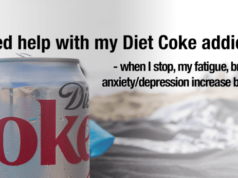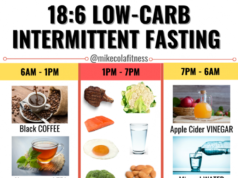Does Diet Pepsi have caffeine? This question has likely crossed the minds of many a soda enthusiast, especially those seeking a sugar-free option without sacrificing that familiar caffeine kick. While Diet Pepsi boasts a lack of sugar, it does contain caffeine, and not just a little bit! It’s a fact that might surprise some, as the “diet” label can sometimes lead to assumptions of a completely calorie-free and stimulant-free beverage.
But let’s delve into the world of Diet Pepsi and uncover the secrets behind its caffeine content.
Diet Pepsi, a staple in the world of sugar-free beverages, was introduced in 1964 as a calorie-conscious alternative to its sugar-laden counterpart. Its key ingredients include carbonated water, caramel color, phosphoric acid, aspartame, and caffeine. While the absence of sugar makes it a popular choice for those watching their calorie intake, the presence of caffeine might be a surprise to some.
Diet Pepsi
Diet Pepsi, a beloved sugar-free cola, has been a staple in many refrigerators and vending machines since its introduction in 1964. This iconic beverage, known for its crisp, refreshing taste, has captured the hearts (and taste buds) of countless consumers seeking a zero-calorie alternative to traditional colas.
History of Diet Pepsi
Diet Pepsi’s journey began in the 1960s, a time when the concept of sugar-free beverages was gaining traction. PepsiCo, recognizing the growing demand for low-calorie options, launched Diet Pepsi in 1964. The initial release was met with considerable success, quickly establishing itself as a popular choice for those seeking to indulge in a familiar taste without the sugar.
Ingredients and Nutritional Information
Diet Pepsi’s unique flavor profile is a result of a carefully curated blend of ingredients.
Key Ingredients
- Carbonated Water:Provides the bubbly, refreshing sensation that defines Diet Pepsi.
- Caramel Color:Contributes to the signature dark brown hue and adds a touch of sweetness.
- Phosphoric Acid:Adds a tangy note and helps balance the sweetness.
- Aspartame:An artificial sweetener that provides a sugar-like sweetness without the calories.
- Caffeine:Provides a stimulating kick, making it a popular choice for those seeking a pick-me-up.
- Natural Flavors:These contribute to the complex, satisfying taste of Diet Pepsi.
- Potassium Benzoate:Acts as a preservative to maintain freshness.
- Citric Acid:Adds a subtle sourness that complements the other flavors.
Nutritional Information
- Calories:0
- Sugar:0g
- Artificial Sweeteners:Aspartame
Caffeine Content in Diet Pepsi
Diet Pepsi, like many other sodas, contains caffeine, a stimulant that can provide a temporary boost in energy and alertness. But just how much caffeine is in a can of Diet Pepsi? Let’s dive into the details and compare it to other popular beverages.
Caffeine Content in Diet Pepsi
A 12-ounce can of Diet Pepsi contains approximately 34 milligrams of caffeine. This amount is similar to other popular diet sodas, such as Diet Coke, which also contains around 34 milligrams of caffeine per 12-ounce serving.
Caffeine Content in Diet Pepsi Compared to Other Beverages
To understand how the caffeine content in Diet Pepsi stacks up, let’s compare it to other popular beverages:
- Regular Pepsi: Contains 38 milligrams of caffeine per 12-ounce can.
- Coca-Cola: Contains 34 milligrams of caffeine per 12-ounce can.
- Coffee: Contains anywhere from 80 to 100 milligrams of caffeine per 8-ounce cup.
- Energy Drinks: Typically contain higher levels of caffeine, ranging from 80 to 300 milligrams per can.
Effects of Caffeine on the Human Body, Does diet pepsi have caffeine
Caffeine is a stimulant that affects the central nervous system. Its effects on the body can include:
- Increased alertness and focus.
- Improved cognitive function and reaction time.
- Elevated mood and reduced fatigue.
- Increased heart rate and blood pressure.
- Diuretic effect, leading to increased urination.
It’s important to note that the effects of caffeine can vary depending on individual sensitivity, tolerance, and the amount consumed. While moderate caffeine intake is generally considered safe for most adults, excessive consumption can lead to side effects such as anxiety, insomnia, headaches, and digestive problems.
Caffeine and Diet Pepsi: Consumer Considerations

Diet Pepsi, like many other diet sodas, offers a caffeine kick without the added sugar. This makes it an attractive option for those seeking a sweet and fizzy drink without the calories or sugar rush. But, as with any caffeinated beverage, there are considerations to keep in mind.
Reasons for Choosing Diet Pepsi
- Sugar-Free Option:For individuals watching their sugar intake or managing diabetes, Diet Pepsi provides a sweet and satisfying alternative to regular soda.
- Caffeine Fix:Diet Pepsi delivers a moderate caffeine boost, appealing to those seeking a pick-me-up without the added calories of regular soda.
- Taste Preference:Some individuals simply prefer the taste of Diet Pepsi over regular Pepsi or other caffeinated beverages.
Health Implications of Caffeine Consumption
Caffeine can have both positive and negative effects on the body, and its impact can vary depending on individual sensitivity and consumption levels.
You’re wondering if Diet Pepsi has caffeine, right? Well, it does! But if you’re really curious about the subtle differences between zero-calorie colas, you might want to check out the difference between Diet Coke and Coke Zero. It’s like a choose-your-own-adventure for sugar-free soda lovers.
So, back to Diet Pepsi – yes, it has caffeine, and it’s probably best enjoyed with a side of existential pondering about the meaning of zero-calorie life.
- Increased Alertness and Focus:Caffeine can improve alertness, focus, and cognitive function, making it popular among students and professionals.
- Potential for Anxiety and Insomnia:For individuals with anxiety or insomnia, caffeine can exacerbate these conditions. Excessive caffeine consumption can lead to jitters, restlessness, and difficulty sleeping.
- Possible Side Effects:High caffeine intake can lead to headaches, nausea, heart palpitations, and dehydration.
Tips for Responsible Caffeine Consumption
Moderation is key when it comes to caffeine. Here are some tips for responsible caffeine consumption:
- Be Mindful of Your Tolerance:Everyone’s caffeine sensitivity is different. Pay attention to how your body reacts to caffeine and adjust your intake accordingly.
- Limit Caffeine Intake in the Afternoon and Evening:Caffeine can interfere with sleep, so it’s best to avoid it in the hours leading up to bedtime.
- Stay Hydrated:Caffeine can have a diuretic effect, so it’s important to drink plenty of water to stay hydrated.
- Consider Alternatives:If you’re concerned about caffeine’s effects, explore other beverages like herbal teas or water.
Diet Pepsi vs. Other Diet Sodas
The world of diet sodas is a bustling marketplace, with a plethora of options vying for your attention. But when it comes to caffeine content, how does Diet Pepsi stack up against its competitors? Let’s dive into a caffeine comparison of some popular diet sodas to see how they measure up.
You’re wondering if Diet Pepsi packs a caffeine punch, right? Well, it does! But if you’re craving a caffeine kick with a bit less sugar, you might want to check out does diet coke have caffeine. While both Diet Coke and Diet Pepsi are sugar-free, Diet Coke might be a better choice if you’re looking for a caffeine boost.
So, whether you’re team Pepsi or team Coke, there’s a caffeine-infused, sugar-free option waiting for you!
Caffeine Content Comparison
To make a fair comparison, we’ll look at the caffeine content per serving size, as this can vary significantly between brands.
| Soda | Serving Size | Caffeine (mg) |
|---|---|---|
| Diet Pepsi | 12 fl oz | 36 |
| Diet Coke | 12 fl oz | 46 |
| Sprite Zero | 12 fl oz | 34 |
| 7 Up Ten | 12 fl oz | 34 |
As you can see, Diet Coke leads the pack with the highest caffeine content at 46 mg per 12 fl oz serving. Diet Pepsi comes in at 36 mg, while Sprite Zero and 7 Up Ten both contain 34 mg per serving.
So, you’re wondering if Diet Pepsi has caffeine? You’re not alone! Many folks think it’s the sugar-free version that’s the caffeine-free one, but alas, it’s still got that kick. Now, if you’re trying to cut back on carbs and are looking for a way to do it, you might want to check out how to do keto diet.
It’s a low-carb, high-fat way of eating that can help you shed pounds and feel great. And hey, if you’re really serious about your caffeine intake, you could always opt for a Diet Pepsi Zero Sugar, which is truly caffeine-free! Just sayin’.
Implications for Consumers
These differences in caffeine content may be significant for consumers who are sensitive to caffeine or trying to limit their intake. For example, someone who is trying to avoid caffeine before bed might choose Sprite Zero or 7 Up Ten over Diet Coke or Diet Pepsi.
Similarly, someone who enjoys the taste of Diet Pepsi but wants a lower caffeine option might consider switching to Sprite Zero or 7 Up Ten.
Caffeine and Diet Pepsi: Impact on Weight Management
The relationship between caffeine and weight management is complex and often debated. Caffeine is known to stimulate the central nervous system, potentially affecting metabolism and appetite. So, does the caffeine in Diet Pepsi play a role in weight gain or loss?
Let’s explore the nuances of this relationship.
Caffeine’s Potential Impact on Metabolism
Caffeine can temporarily increase metabolism, leading to a slight increase in calorie burning. This effect is primarily due to caffeine’s ability to stimulate the release of adrenaline, a hormone that increases heart rate and energy expenditure. However, the impact of caffeine on metabolism is generally modest and short-lived.
Caffeine and Weight Gain or Loss
While caffeine can slightly boost metabolism, it’s not a magic bullet for weight loss. The caffeine in Diet Pepsi is unlikely to contribute significantly to weight gain or loss. The calorie content of Diet Pepsi is negligible, so the primary factor influencing weight management is overall calorie intake and expenditure.
Diet Sodas and Weight Management: A Broader Perspective
Beyond caffeine, diet sodas have been linked to potential weight management concerns. Some studies suggest that artificial sweeteners in diet sodas may disrupt gut bacteria, potentially influencing appetite and metabolism. Additionally, the frequent consumption of diet sodas might lead to cravings for sugary drinks and foods, potentially contributing to weight gain.
It’s important to note that the research on the impact of diet sodas on weight management is mixed, and more research is needed to fully understand the long-term effects.
Outcome Summary
So, does Diet Pepsi have caffeine? The answer is a resounding yes! It’s important to be aware of the caffeine content in all beverages, including diet sodas, to make informed choices about our consumption. While Diet Pepsi can be enjoyed as part of a balanced diet, remember that moderation is key.
As always, if you have any concerns about caffeine consumption, consult with a healthcare professional. Now, go forth and enjoy your Diet Pepsi, but maybe just one!
FAQ Explained: Does Diet Pepsi Have Caffeine
Is Diet Pepsi healthier than regular Pepsi?
Diet Pepsi is lower in calories and sugar than regular Pepsi, but it’s not necessarily healthier. Both contain caffeine and artificial sweeteners, which some people may want to limit.
Does Diet Pepsi affect my sleep?
Caffeine can interfere with sleep, so it’s best to avoid Diet Pepsi close to bedtime.
Is Diet Pepsi good for weight loss?
While Diet Pepsi is calorie-free, it’s not a magic weight loss solution. It’s still important to maintain a healthy diet and exercise routine for effective weight management.
Can Diet Pepsi cause headaches?
Some people experience headaches after consuming caffeinated beverages, including Diet Pepsi. If you’re prone to headaches, it’s best to limit your intake.
























